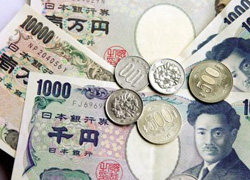 The yen’s decline threatens Japan with a fall into a recession reducing the purchasing power of common households and puts pressure on corporate profits it was said by a deputy governor of the Bank of Japan.
The yen’s decline threatens Japan with a fall into a recession reducing the purchasing power of common households and puts pressure on corporate profits it was said by a deputy governor of the Bank of Japan.
In an interview held on September 19th in Tokyo, it was quoted by the deputy from 2003-2008, Kazumasa Iwata “The current yen weakness is slightly excessive,” and further went onto saying, “Abenomics entails the risk of ‘beggar thyself’ consequences and signs are already emerging.”
A 6 year low against the dollar by the Yen, as the ongoing diverge in monetary policies from the U.S. to Japan cause a potential looming increase in exchange-rate volatility.
The economy straining under the rising import costs as Shinzo Abe who is the Prime Minister weighs whether Japan can with stand yet another sales tax increase to rein as possibly the world’s biggest debt burden.
It was quoted by the president of Japans Centre of Economic Research, Mr Iwata, “Currency levels appropriate for reflecting Japan’s economic fundamentals are 90-100 yen to the dollar,”
As of 1:51pm in Tokyo the Yen traded at 108.80 per dollar right after it touched 109.46 on September 19th, the weakest since back in August 2008. It has fallen by 4.5 percent over the past month, the biggest fall among the 16 major currencies.
As an unprecedented easing continues to strive to achieve its inflation target, the BOJ governor, Hauhiko Kuroda who was handpicked by Abe back in 2012 has said he would do what was needed to accomplish this.
At a meeting in Cairns, Australia on September 19th, Kuroda who was speaking at the Group of 20 meeting after the dollar rose 109 yen, said he did not see any big problems with current movements in the exchange rates.





